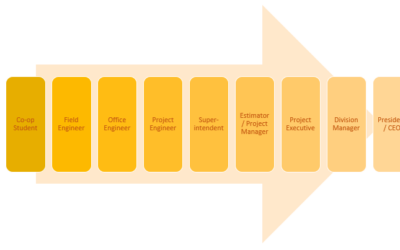Executive Summary. Contractors are told to build projects in record time without having complete information. It’s not fair to the Engineer, the Contractor, the Owner, or the Taxpayer. There’s an easy fix which will get the project most of the way to a successful conclusion. Park the Engineer of Record (“EOR”) on the project.
I said told, not asked. Above I originally wrote “Contractors are asked…”, but I changed it to “Contractors are told…” That’s because this is how construction contracts are written. The Contractor is told that he or she must finish in “x” number of days or suffer liquidated damages, which is a financial penalty usually by the calendar day, that the Contractor must pay if they deliver a project late.
You may say, “well, so what, if he or she will finish late, just put in the dollars to account for the late finish.” That’s all fine and good for the Contractor’s and Owner’s budgets, but it may come back to bite a Contractor if there is a future job pre-qualification question of “Have you ever finished a project late and suffered liquidated damages?”
Which is worse – document quality or response time? Which option below do you think a Contractor would choose?
Well, let’s see, I was a Contractor – I pick Option 1. This may be surprising, but here’s the two reasons:

- Time is money. Period.
- Bad documents = change orders, which may mean more profit.
Most Engineers and Owners are thinking that Contractors love change orders. Not true. Change orders don’t always make money, especially if they take a long time to process.
Seems time is more important. First of all you have to assume this is NOT a time and materials project. You bet time is more important. Just say you have a project with 35 total people on it (7 staff and 28 craft workers). And, on average, the annual wage per person is $100k (don’t forget this is all in: wage, overtime, bonus, medical, retirement, taxes, et cetera). If I’m waiting on the Engineer for an RFI (request for information) answer and it costs me a calendar day, this is:

So, each minute I’m waiting on an answer to an RFI, it’s costing me $20. Heck, you’ve been reading this article for two minutes – you’ve burnt 40 bucks.
It doesn’t add up. Why is it that Owners always want their jobs done quickly, but then allow the Engineer to take 7 to 30 days to review RFIs and submittals, respectively? If Owners want their jobs done quickly, why don’t they mandate quicker answers? If the Contractor is onsite, along with the Construction Manager, why can’t the EOR, or his/her representative, be onsite? This way the Project does not lose time in (a) sending the question to the EOR, (b) the EOR’s potential misinterpretation or complete misunderstanding of the RFI, and (c) getting the answer back to the Contractor. If the Engineer is onsite, this can be a real time conversation with a real time written answer.
We don’t have the budget is why. Huh? I hear this answer a lot. “Well, we could put an engineer on the site to represent the EOR, but we don’t have the budget.” Wait. What? But you have time to have the Engineer sit in his office and answer the question, sometimes more than once. So, answering it twice from a seat downtown is cheaper than answering it once at a plastic table in a double wide trailer adjacent to the work?

The answer and proposed new normal. Why not put the EOR’s representative onsite full time, or a couple days a week, to give instant answers to the Contractor or Construction Manager?
That was easy.
My story. I recently worked with a construction project manager who told me that this process of having an onsite EOR was normal for him. Obviously he and I have had different careers because this has not been the case for me. I have seen it on a design/build project, but never on a design/bid/build project where the Contract Documents have come out, how do I say it – less than stellar.

I just believe that a successful project is one in which the parties treat each other fairly. If you are an owner and you want something to be done quickly, you’ve got to remove the obstacles which slow down the process. Because the price you received was a “get-the-project-done-quickly price”, not a “wait-a long-time-for- answers-on-documents-that-you-failed-to-do-satisfactorily-the-first-time price”.
A project which is sped up requires the construction process to match the mandated construction speed. This means quicker turnaround on RFIs and submittals and this can be greatly enhanced by on site engineering.
Work Safe!






0 Comments